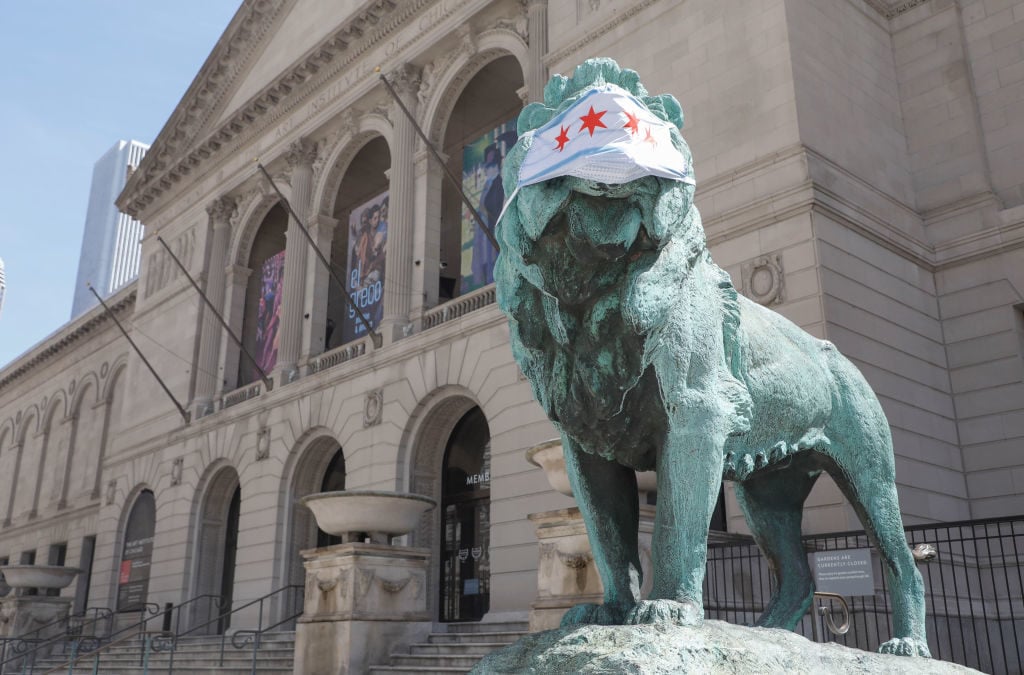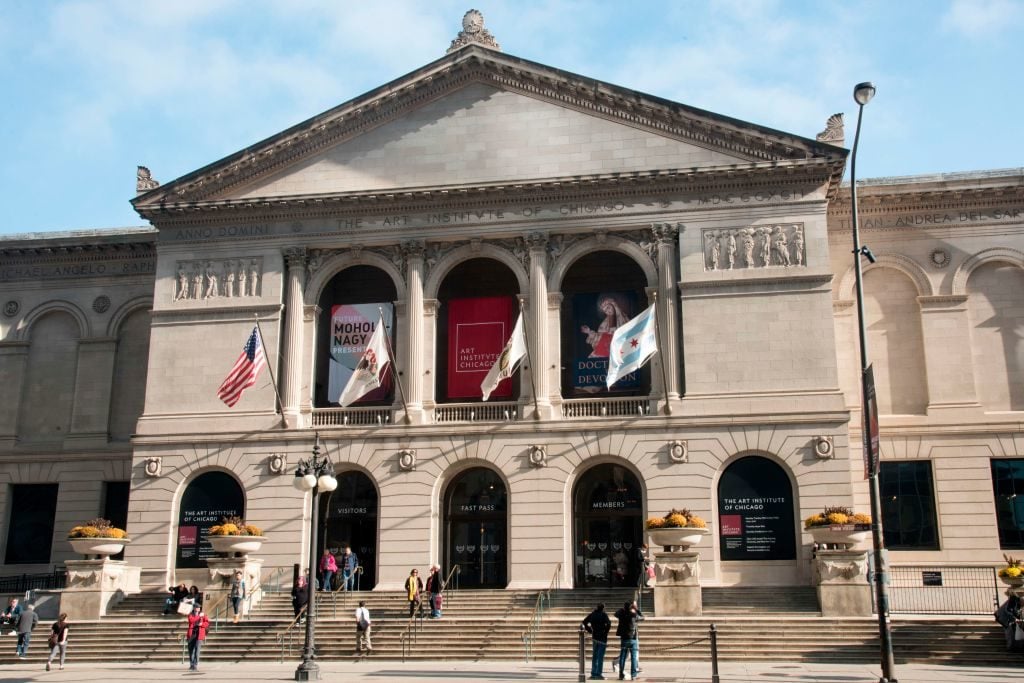Politics
How a Group of Midwestern Museum Docents Wound Up at the Center of a Right-Wing Media Firestorm
The Art Institute of Chicago abruptly dismissed all of its docents.

The Art Institute of Chicago abruptly dismissed all of its docents.

Sarah Cascone

Docents, the kindly volunteers who give museum tours to school children, may not seem like a group prone to setting off firestorms in right-wing media. But that’s exactly what happened when the Art Institute of Chicago (AIC) informed its fleet of docents last month that their services were no longer needed, effective immediately.
The museum told the volunteers that it was making an effort to involve more demographically diverse voices at the museum. The current docents—which trended toward older white women with free time—would be replaced by part-time paid employees in the hopes of attracting those for whom volunteer labor was not financially feasible.
The museum “had a responsibility to rebuild the volunteer educator program in a way that allows community members of all income levels to participate, responds to issues of equity, and does not require financial flexibility to participate,” wrote Veronica Stein, the director of learning and public engagement for the museum’s woman’s board, in a letter to the 82 active docents on September 3.
“Rather than refresh our current program, systems, and processes, we feel that now is the time to rebuild our program from the ground up,” she said, noting that current docents would be invited to apply for the paid positions. (Several are already interviewing for the new jobs, the museum confirmed.)

Art Institute of Chicago, Chicago, Illinois. Photo: Education Images/UIG via Getty Images.
What the museum was not expecting was the intense backlash. Dedicated docents felt their abrupt dismissal was a slap in the face, especially given the position’s rigorous 18-month training period to qualify, reported the Wall Street Journal.
Conservative-leaning media outlets framed the mass firing as an example of diversity and inclusion efforts gone too far. “The left does not see injustice when privileged white people are discriminated against,” wrote the Federalist.
The Chicago Tribune’s editorial board, meanwhile, called Stein’s letter “weaselly” and volunteer docents “a vulnerable group in today’s progressive power structure.”
“People are upset about getting rid of docents because it is shifting the balance of power,” curator and activist Kelli Morgan told Artnet News. “I think that’s something that has to happen across the board at all institutions—because when you leave the status quo as it is, nothing changes.”
The museum declined to make Stein available for an interview, but said through a spokesperson that “we are disappointed that this change has led to harassment and threats to our staff.”
While the elimination of docents struck many as sudden, it had actually been in the works for years. The AIC stopped training new docents in 2012, and has been in talks to restructure the program since 2019.
“As we begin to recover from the pandemic, we are able to meet current tour demand with our existing professional staff, and are in the process of hiring paid educators who will lead tours once demand increases,” an AIC spokesperson said. “When we are back to pre-pandemic tour levels, we will once again reintroduce volunteer educators.”
The AIC is not the only museum who used the last year’s extended closure as an opportunity to implement personnel changes. The Birmingham Museum of Art formally ended its volunteer docent program this past June after auditing the program on diversity and inclusion grounds.
“When the museum closed its doors in March of 2020, we began an extensive reevaluation of our institution, taking a hard look at our resources, goals, and priorities,” a spokesperson told Artnet News in an email. “These considerations were informed by the economic and social implications of the pandemic, as well as the global reckoning around racial injustice.”
The Birmingham Museum is now developing a paid teaching fellowship program, “following a model set forth by other institutions, like the Mississippi Museum of Art, that would allow students from a variety of majors to gain training, skills, and experience to further their careers,” the spokesperson said. “This program also serves a critical museum need to diversify future professionals.”
Unlike in Chicago, there was comparatively little outcry over the changes in Birmingham.
“While the museum did lose a few donors from among the docent corps, the decision was met with support from other donors,” the spokesperson said. “There were also those who disagreed with the decision, but did not withdraw funding, as they respected the desire of the institution to make changes that ensure the museum’s continued relevance to the community it serves.”
At the AIC, a redesigned volunteer model, developed with input from an advisory council of former docents, is set to be introduced in 2023.
“The terrain is changing,” Morgan said. “If you are that dedicated and you are that interested, you need to reeducate yourself to the new terrain. You can still utilize and share what you’ve learned to this point, but this moment is requiring for you to learn something new—and you have to learn it in a different way.”